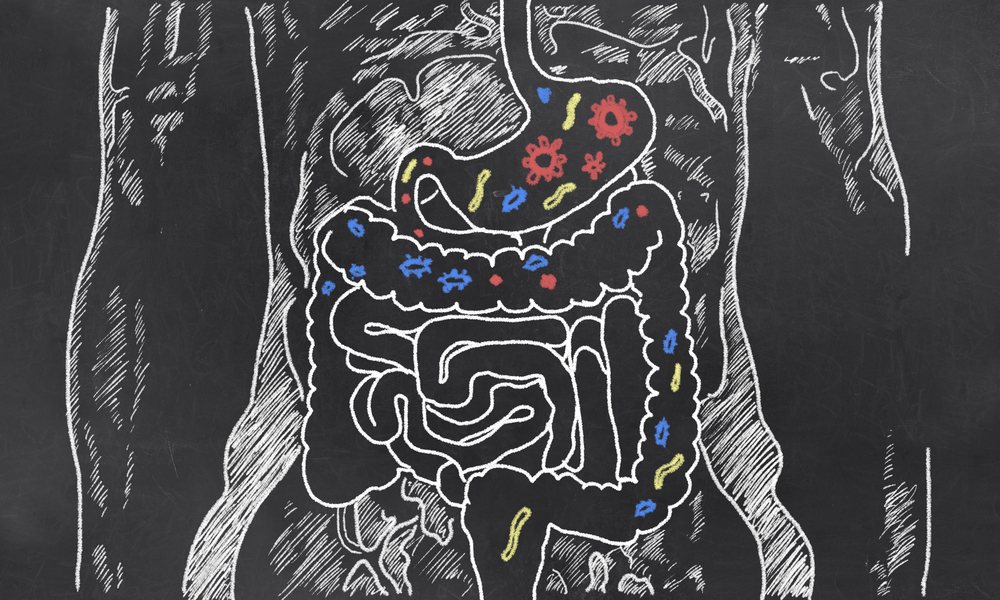
In Part 1 of our blog series on intestinal permeability, we explained what intestinal permeability really is and why the more popular term, leaky gut, doesn’t make sense. The gut is supposed to “leak” to allow nutrients into the bloodstream while the immune system fights off any toxins that sneak through the gastrointestinal wall.
However, the passage of nutrients, toxins and other substances through the intestinal wall is supposed to be tightly controlled. An imbalance of gut bacteria causes the gastrointestinal system to become unregulated, which allows toxins, digestive proteins, bacteria and viruses to enter the blood stream. This causes the immune system to start attacking everything until it wears down and crashes, which leads to problems ranging from food allergies to autoimmune diseases.
What Causes Intestinal Permeability?
We know an imbalance of gut bacteria causes the problem, but what causes the imbalance of gut bacteria? Let’s start with the obvious – the food we put into our bodies.
Severely refined foods such as gluten and certain grain products can cause bacterial imbalance in the gut. Heavily processed foods with added sugar, sodium and fats can have a similar effect. Herbicides and environmental toxins found in our food supply, including non-organic fruits and vegetables, can contribute to intestinal permeability.
For example, Monsanto, the maker of Roundup, encourages farmers to apply this herbicide to crops such as wheat, barley, oats, canola, flax, peas, lentils and beans. The active ingredient is glyphosate, which is considered nontoxic to humans. However, glyphosate is capable of destroying or inhibiting the growth of gut bacteria. It also prevents this bacteria from making aromatic amino acids that are essential to human health.
The effects of excessive alcohol consumption – headache, dehydration, diarrhea, mood swings and physical weakness – are all signs of intestinal permeability. Prescription antibiotics, steroid drugs, and non-steroidal anti-inflammatory drugs such as MiraLAX can also cause a gut bacteria imbalance.
How to Treat Intestinal Permeability
Before we treat, we have to diagnose. Although there is no official diagnosis for intestinal permeability, conditions such as irritable bowel syndrome, small intestinal bowel overgrowth, rheumatoid arthritis, Hashimoto’s disease, thyroiditis, some attention deficit disorders, and depression are all considered subsets of intestinal permeability. Food allergies, especially those involving organic, naturally grown foods that every human should be able to consume, can often be traced back to intestinal permeability.
Treating intestinal permeability requires us to restore and maintain a balance in gut bacteria. Medication, one of the top causes of intestinal permeability, only makes the problem worse. But special diets can also be ineffective.
For example, suppose the patient feels better after several months on an elimination diet that cuts out certain foods, whether they’re berries, avocados or natural carbohydrates. The patient may feel better, but the problem hasn’t been corrected. All you did was remove the inflammatory substance.
This is just the entry level phase of the solution. It’s the symptom reducer.
A diet rich in natural, unprocessed foods, probiotics (the good gut bacteria), and prebiotics (fibers that feed the good gut bacteria) can certainly help. Getting rid of added sugars, artificial sweeteners, processed foods, alcohol, pain medication and other inflammatory substances is always a good idea, regardless of your condition.
Dr. Oscar Coetzee has been conducting scientific research into a treatment protocol for intestinal permeability for years. This protocol is currently in the clinical trial stage and includes three phases – re-soil (with the soil microbes that we no longer get in our diet), re-seed (by activating these microscopic probiotics in the digestive tract), and re-feed (with the kind of diversified diet that’s required for a healthy gut biome).
In the third and final part of this blog series, we’ll dig into this exciting research in more detail.